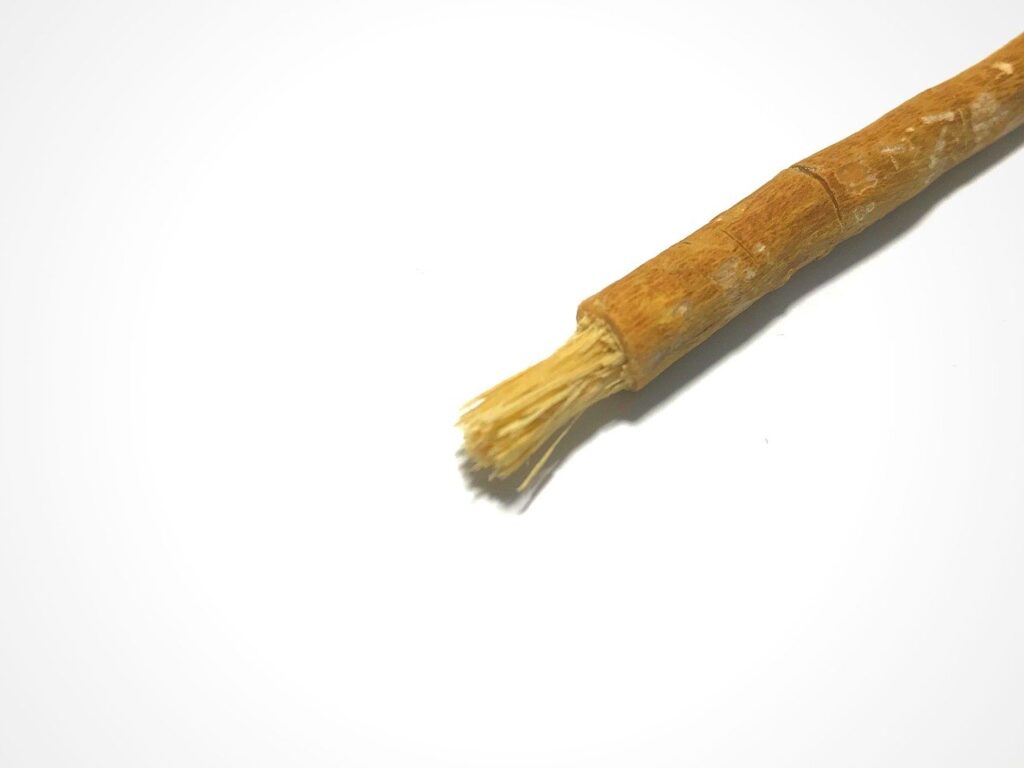
Oral hygiene has always been a significant aspect of human civilization, and throughout history, various tools and methods have been used to maintain dental health. One of the most intriguing examples of an early oral hygiene aid is the “siwak,” also known as “miswak” or “miswak.” This article explores the historical significance of siwak and its role as an early oral hygiene aid.
Siwak, an Arabic term widely used across the Middle East and the Indian subcontinent, refers to a small twig obtained from the Salvadora persica tree or the Arak tree. It has a long history dating back to ancient civilizations, including those of the Islamic world, where it holds great importance as a natural and eco-friendly means of oral care.
Historical Roots
The use of siwak as an oral hygiene aid can be traced back thousands of years to ancient civilizations such as the Babylonians, Egyptians, and Greeks. Historical evidence suggests that the Prophet Muhammad (peace be upon him) also highly recommended the use of siwak, contributing to its popularity in the Islamic world. Over time, this practice spread to other cultures and regions, becoming a widely adopted oral care tradition.
Composition and Properties
Siwak is essentially a small twig or stick, typically around 15 to 20 cm in length, derived from the Salvadora persica tree. It contains a plethora of natural compounds that contribute to its unique oral health benefits. The twig’s bristles, when chewed, fray into a brush-like shape, allowing it to clean the teeth effectively. Furthermore, siwak contains natural fluoride, silica, and astringent elements that help combat oral bacteria, plaque, and gum inflammation.
Oral Health Benefits
Siwak offers several notable oral health benefits, making it an ideal early oral hygiene aid. Some of its advantages include:
1. Natural Antimicrobial Properties:
The natural compounds found in siwak possess antimicrobial properties that can help eliminate harmful bacteria responsible for cavities and gum disease.
2. Plaque Removal:
The bristles of the siwak twig act as a natural toothbrush, efficiently removing plaque and debris from the teeth and gumline.
3. Freshens Breath:
Siwak has a pleasant, aromatic flavor that leaves the mouth feeling fresh and clean after use, naturally combating bad breath.
4. Gum Health:
Regular use of siwak can reduce gum inflammation and promote healthier gums, preventing gum-related issues.
5. Environmentally Friendly:
Siwak is entirely natural and biodegradable, making it an eco-friendly alternative to modern plastic toothbrushes.
Cultural Significance
Siwak holds immense cultural and religious significance in various societies. In Islamic tradition, using siwak is considered a Sunnah (commendable practice) based on the teachings of the Prophet Muhammad (peace be upon him). Many Muslims incorporate the use of siwak into their daily ablution routine, especially before prayer, to cleanse the mouth and attain spiritual purity.
Modern Relevance
Despite the advent of modern oral hygiene products such as toothpaste and toothbrushes, the use of siwak continues to endure due to its historical importance and proven oral health benefits. In recent years, there has been a resurgence of interest in natural and traditional practices, leading to a renewed appreciation for siwak as an early oral hygiene aid.
Siwak, derived from the Salvadora persica tree, stands as an ancient example of an early oral hygiene aid. With its natural antimicrobial properties, plaque-removing abilities, and cultural significance, siwak has remained relevant through the ages. As we delve into the modern era with a growing emphasis on eco-friendly practices, siwak’s sustainable and natural attributes continue to make it a compelling choice for oral care enthusiasts worldwide. So, the next time you think about maintaining your oral hygiene, consider this time-honored tradition and give siwak a try. Your teeth and the environment will thank you!
